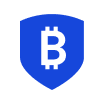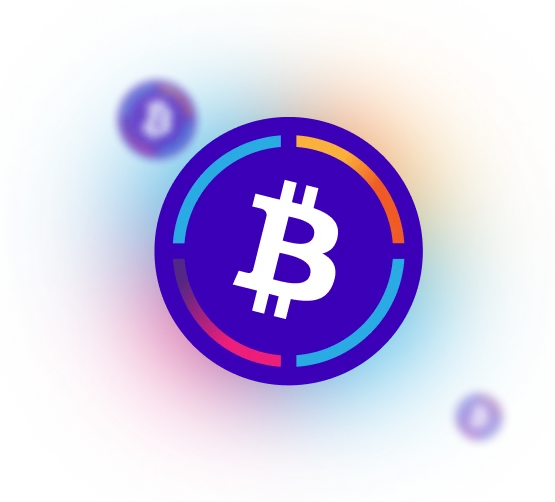Understanding the ICP token
Engage with the Internet Computer and its ecosystem through the use of its native utility token.

Powers computation, staking, voting, governance & ownership.
The ICP token plays a number of roles on the Internet Computer. Firstly, as a governance token, it can be staked to exercise those governance rights. As a utility token, it can be burned to obtain ‘cycles‘ which serves as gas for computation and storage in canister smart contracts. It can also be minted to reward ‘node machine‘ providers for providing that compute and storage.
In addition to these core uses, ICP tokens can be used to participate in decentralisation swaps to become a co-owner of an SNS DAO, and when using many smart contract services built on the Internet Computer such as registries, marketplaces and exchanges.
The ICP token implements the ICRC-1 standard.
 ICP token utility
ICP token utility
- Participate in governance
- Burn for cycles
- Participate in decentralisation swaps
- Reward node machine providers
 Cycles
Cycles
- Stable cost of compute & storage
- Fuel storage, compute, & bandwidth
Ways to use ICP tokens
Participate in governance
The Internet Computer Protocol is run by the NNS, the largest DAO managing an L1 blockchain. ICP token holders can participate in network governance simply by staking tokens in neurons and locking them with a specified dissolve delay (time to unlock). A neuron with a dissolve delay greater than 6 months can vote on governance proposals and earn rewards. ICP neuron holders can also submit proposals to make changes to the protocol. This open and autonomous governance system runs 100% on chain, and currently holds over 250 million locked ICP.
Burn for cycles
Unlike other smart contract blockchains, the Internet Computer runs on a “Reverse Gas Model”. This means computation and storage costs are paid for by developers, and developers are responsible topping up smart contracts with cycles to fuel the compute power and storage of their dapps. The Reverse Gas Model allows users to interact with dapps on the Internet Computer without tokens, and as seamlessly as they would on any Web2 application.
Use ICP in the ecosystem
Store ICP in wallets, swap it on DEXs, collect NFTs or tip friends while chatting. The Internet Computer is home to a growing ecosystem of dapps, many of which use ICP.
Where to get ICP
The ICP token is widely available on centralized exchanges.
Swap BTC for ICP on a DEX.
Directly fund a ckBTC wallet with BTC and swap it for ICP using any of these DEXs — all without centralized exchanges. This was made possible on the Internet Computer through native Bitcoin integration.
Wallets & custody
Understand the benefits and limitations of each custody option so you can choose the wallet that best suits your needs.
Web Wallets
Web-based dapps that are easily accessible with the creation of an Internet Identity. Great for daily use and small amount transfers.

Oisy
Safe. Seamless. Sovereign. Built by Dfinity

NNS Dapp
Store and stake ICP, participate in governance.

NFID
Crypto wallet & gateway to ICP apps
Mobile app wallets
Mobile apps offer easy access to crypto assets for people who use them frequently.
Browser extension wallets
Great for users already familiar with crypto wallets from other chains.

Plug
Access ICP and other tokens, cycles and dapps in one click.

Trust Wallet
Multichain wallet trusted by 140M people
Hardware wallets
Maximum security. Hardware wallets hold private keys in airgapped machines or ledger devices.
Institutional custody
For anyone managing large amounts of crypto assets. Institutional custodians offer reliability and customer support.

ARCHIP
Institutional custody solution of Swiss private bank Maerki Baumann

Bitgo
Institutional ICP custody

Ceffu
ICP custody powering solutions for hundreds of institutions

Cobo
Institutional custody infrastructure with strong footprint in Asia and bitcoin ecosystem

Coinbase
Institutional ICP custody

Copper
Institutional ICP & ecosystem token custody and ICP staking

Cordial Systems
High security MPC, supporting Institutional ICP custody

DFNS
Institutional ICP custody

Primevault
Institutional ICP & ecosystem token custody with DeFi access

Sygnum
Institutional ICP custody & staking

Taurus
Institutional ICP & ecosystem token custody and staking

Zodia
Leading institutional custody provider serving the funds market
Get more involved
Participate in SNS DAOs
Own a piece of your favorite dapps on the Internet Computer, and shape their development by participating in governance.
DeFi on the Internet Computer
Build and use DeFi apps on the Internet Computer that are hosted 100% on the blockchain.
Join the ICRC conversation
Community discussions around extending the ICRC token standard for all ledgers to optimize functionality is ongoing.







